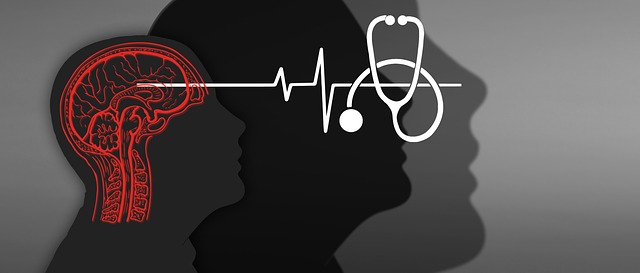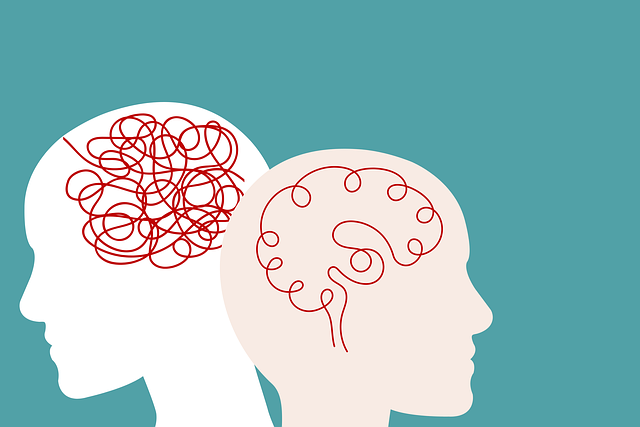Mental wellness self-assessment tools are vital for individual awareness and proactive mental health management, especially in today's stressful environment. For healthcare providers, tailored tools like Parker Polyamorous and Open Relationships Therapy Model can enhance coping strategies and overall well-being. This model offers a specialized approach, recognizing unique emotional dynamics within polyamorous and open relationships, encouraging emotional intelligence, open communication, and accessible community outreach programs. Effective self-assessment tools consider user-friendly interfaces, reliable metrics, and tailored feedback, empowering individuals to manage their emotional well-being, especially in complex relationships. In the digital age, these tools improve mental health support access, reduce stigma, foster inclusivity, and promote equitable services for diverse populations like Parker Polyamorous and Open Relationships Therapy communities.
Mental wellness self-assessment tools play a crucial role in empowering individuals to take charge of their mental health. This article explores the development of such tools, focusing on the unique Parker Polyamorous and Open Relationships Therapy Model. We’ll delve into defining the need for these assessments, understanding their target audience, and how they differ from traditional approaches. Additionally, we’ll discuss key features in design, accessibility enhancements, and their role in fostering comprehensive mental health support within diverse relationships.
- Understanding Mental Wellness Self-Assessment: Defining the Need and Target Audience
- The Parker Polyamorous and Open Relationships Therapy Model: A Unique Approach
- Developing Effective Self-Assessment Tools: Features and Implementation
- Enhancing Accessibility and User Experience for Comprehensive Mental Health Support
Understanding Mental Wellness Self-Assessment: Defining the Need and Target Audience

Mental wellness self-assessment tools play a pivotal role in promoting individual awareness and fostering proactive mental health management. These tools are designed to help individuals gain insights into their emotional, psychological, and behavioral states, enabling them to identify potential issues early on. By understanding one’s mental wellness, individuals can take informed decisions to maintain balance and seek appropriate support when needed.
The need for such assessments is particularly acute in today’s fast-paced world where stress, anxiety, and burnout are prevalent, especially among healthcare providers and mental health professionals. Targeting these specific audiences—including those exploring Parker Polyamorous and Open Relationships Therapy—is crucial. Customized self-assessment tools can help identify unique challenges associated with diverse relationship dynamics, thereby enhancing coping strategies and overall well-being. This is particularly relevant in the context of Burnout Prevention Strategies for Healthcare Providers and Risk Management Planning for Mental Health Professionals, ensuring that practitioners have effective tools to manage their own mental health while providing quality care. Furthermore, promoting Mental Health Awareness through these assessments can create a supportive environment where individuals feel empowered to prioritize their psychological well-being.
The Parker Polyamorous and Open Relationships Therapy Model: A Unique Approach

The Parker Polyamorous and Open Relationships Therapy Model offers a unique perspective on mental wellness assessment, catering specifically to individuals within polyamorous and open relationships. This therapeutic approach recognizes the distinct emotional dynamics and challenges faced by these couples, providing a specialized framework for understanding and addressing their psychological needs. By focusing on the complexities of non-monogamous relationships, this model facilitates a more nuanced self-assessment process.
It encourages clients to explore their emotional intelligence, fostering open communication and understanding within their partnerships. This holistic approach integrates mental health education programs designed to empower individuals to navigate the unique social structures of polyamorous communities. Additionally, community outreach program implementations can enhance accessibility to tailored therapy models like this, ensuring better support for diverse relationship dynamics.
Developing Effective Self-Assessment Tools: Features and Implementation

Developing effective self-assessment tools is a multifaceted process that requires careful consideration of various components to ensure accurate evaluation and support for mental wellness. These tools play a pivotal role in empowering individuals to take charge of their emotional well-being, especially when navigating complex relationships like polyamorous and open relationships, as explored in Parker Polyamorous and Open Relationships Therapy.
A robust self-assessment should incorporate features such as user-friendly interfaces, reliable metrics, and tailored feedback mechanisms. It must be designed to capture not only an individual’s current mental state but also their personal growth over time. By integrating elements of Self-Esteem Improvement and Trauma Support Services, these tools can offer valuable insights into coping Skills Development, enabling users to build resilience and enhance their overall mental wellness journey.
Enhancing Accessibility and User Experience for Comprehensive Mental Health Support

In today’s digital era, developing user-friendly mental wellness self-assessment tools is paramount to enhancing accessibility and comprehensive mental health support. These tools play a pivotal role in breaking down barriers by offering convenient and confidential ways for individuals to assess their mental well-being. Incorporating features like intuitive interfaces, personalized feedback, and interactive elements can significantly improve the user experience, encouraging more people to take charge of their mental health proactively.
Moreover, tools that cater to diverse populations, such as Parker Polyamorous and Open Relationships Therapy resources, are essential in reducing the mental illness stigma within these communities. By prioritizing inclusivity and cultural sensitivity, self-assessment platforms can foster a sense of belonging and encourage individuals to seek support without fear of judgment. This approach aligns with broader Mental Health Policy Analysis and Advocacy efforts, promoting equity and accessibility in mental health services for all.
Mental wellness self-assessment tools play a pivotal role in empowering individuals to take charge of their mental health. By understanding the unique needs of diverse audiences, such as those in polyamorous and open relationships, we can develop effective tools like the Parker Polyamorous and Open Relationships Therapy Model. This innovative approach ensures accessibility and enhances user experiences, fostering comprehensive mental health support tailored to individual circumstances. Through continuous evaluation and improvement, these tools can significantly contribute to improving overall mental wellness in our increasingly diverse society.













